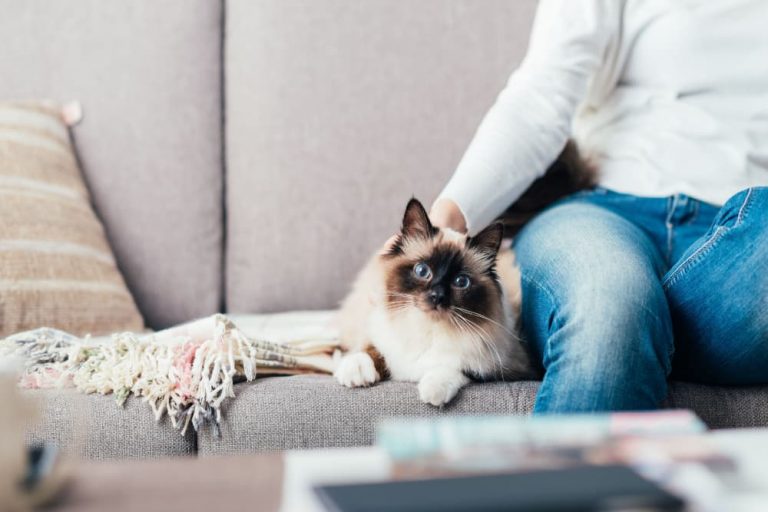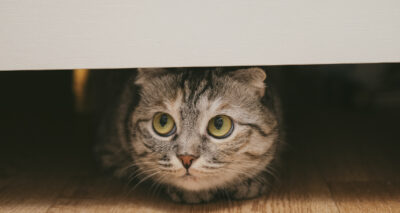Do Cats Fart?

Gas is a natural part of digestion. And one result of your body doing its job is – well – farts.
Stomach issues don’t discriminate. If you are a cat parent, you probably know your cat has her fair share of gas and bloating issues. But, do cats fart? Here’s everything you need to know about cat gas.
Do Cats Fart?
“Everybody farts, including cats. Most of it passes without notice, though,” says Dr. Julie Sanders, veterinarian and director of operations at Heart + Paw.
As for how often cats fart, that’s dependent on factors like your cat’s nature, as well as your cat’s diet.
“It’s no less common in cats than in dogs or people, but it tends to be less noticed, possibly because cats are a bit more private,” adds Dr. Sanders. “Cats, as obligate carnivores, also consume less fiber – which is one of the sources of healthy intestinal gas.”
What Causes Cat Gas?

If your cat is digesting her food properly, gas is a natural byproduct.
“Fiber is digested by ‘good’ gut bacteria, producing butyrate which feeds the cells of the colon,” explains Dr. Sanders. “The gasses passed from this part of a normal, healthy metabolism largely go unnoticed.”
One possible cause of cats farting more than normal could be due to a recent diet change.
“A sudden dietary change can be harmful despite the best of intentions,” says Dr. Sanders. “A gradual diet change and diet trial might be a useful part of diagnosing and/or treating excessive, malodorous gas, and should always involve a consultation with your veterinarian first.”
However, if your cat has particularly smelly farts, it could signal a more significant digestive issue.
“Malodorous (very smelly) or frequently noticeable farts from cats can be a sign of diseases ranging from intestinal parasites to dietary intolerance or inflammatory bowel disease,” says Dr. Sanders.
What to Do If Your Cat is Farting a Lot

If you notice your cat is excessively farting, it’s time to call or visit your vet.
“It may seem counterintuitive, but starting with diagnostics and finding the underlying cause can achieve comfort for your pet sooner, and ultimately save you time, money, and stress,” says Dr. Sanders. “If you have a good relationship with your vet and visit us for regular wellness care (at least every 6-12 months), we may even be able to start with a remote consultation (video or phone).”
Dr. Sanders notes that your vet may recommend:
- A thorough physical exam
- Testing a fecal sample for intestinal parasites
- Bloodwork (to look for conditions like thyroid disease, among others, that can affect digestion)
- Imaging, such as abdominal ultrasound (used to see changes consistent with inflammatory bowel disease, dietary intolerance, and cancer) or x-rays (to rule out foreign material and partial obstructions)









